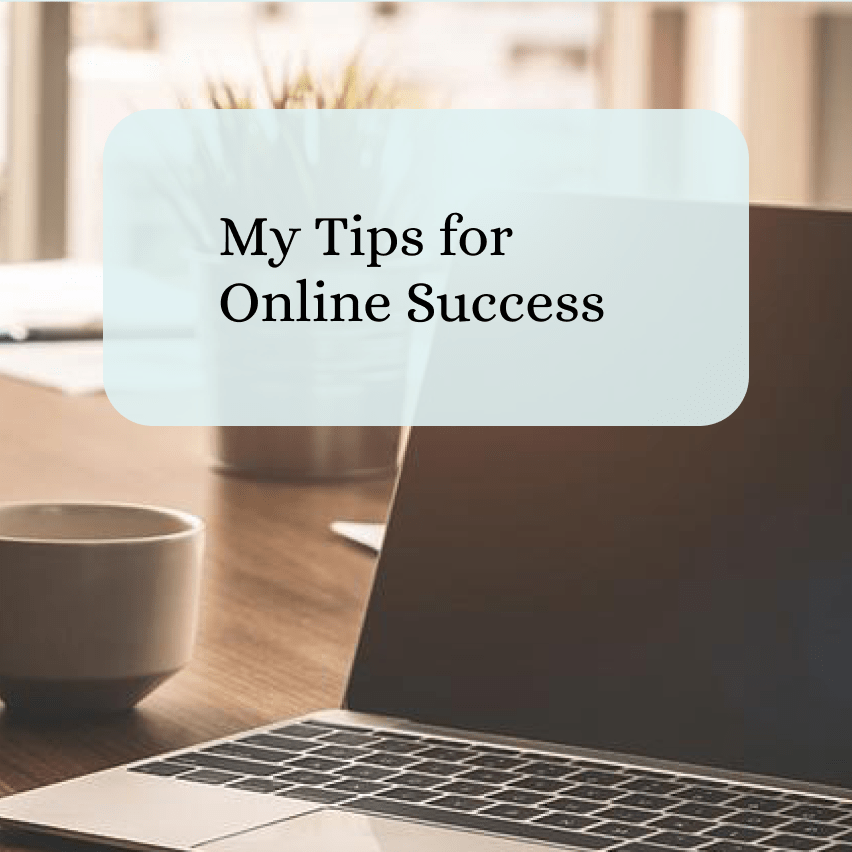Search engine optimization is both an art and a science. That’s I’ve written down some SEO Tips for Online Success. These tips helped me to become aware of site best practices in the beginning. I learned what to do and what not to do when I knew what Search engine optimization actually is. And yes, it’s more than keywords, alt text and meta descriptions.
The Impact of SEO
Search engine optimization is crucial if you want to build a strong online presence for your business. Search Engine Optimization, SEO in other words, revolves around optimizing your website for search engines such as Google. If you optimize your website, your website will rank better in the search results. That score partially determines your online success.
There are many aspects of SEO, on-page, off-page, technical, and content. It’s about finding the right mix for both search engines and your target audience. If you write for people, you also write for Google. As soon as visitors find your website valuable, your online authority will increase and you’ll be easily discovered by new visitors.
Search engine optimization is a long-term investment, which also brings many long-term benefits. So don’t think that you will see great results in no time, you often need just a little more patience. But once you get the hang of it, keep going. Keep developing and keep yourself busy. Websites that remain relevant and consistent often see the most results.
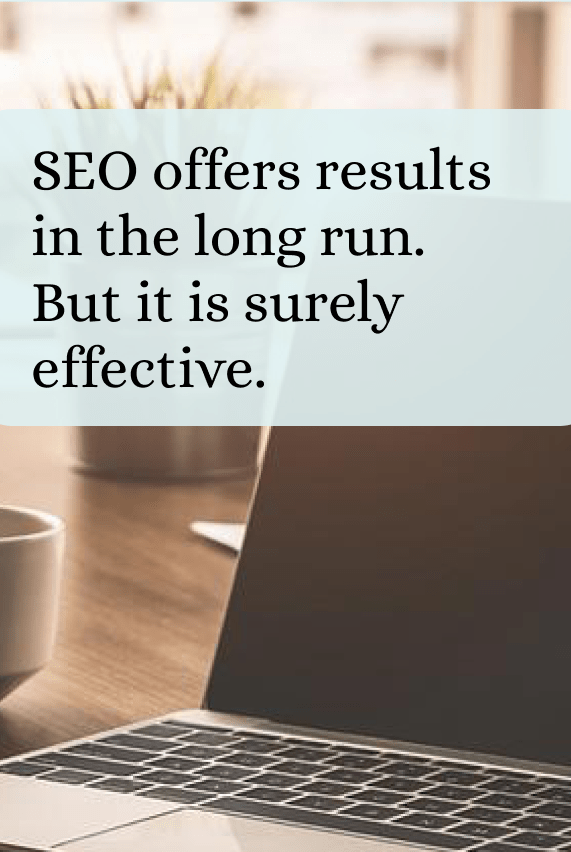

Statistics
- 93% of all online experiences start with a search engine.
- The first 5 organic search results on a search page receive about 67% of all clicks.
- 75% of users never click on the 2nd page of search results.
- Companies that blog have 434% more indexed pages and generate an average of 55% more website traffic than companies that don’t.
- Companies that invest in SEO have an average return of 14.6% per year.
- Organic search results have an average click-through rate (CTR) of 31.7%, while paid search results have an average CTR of 1.91%.
- A study of BrightLocal shows that 57% of consumers will only visit a business if it appears on the first page of search results.
According to a study by Search Engine Journal 70-80% of users are only interested in organic search results and ignore paid ads.
On-page SEO
On-page SEO is everything you can do to make your own website rank higher in search results. This means making smart use of keywords in your titles, headlines and texts, optimizing images and videos, improving your meta descriptions and ensuring that your website has a logic and clear structure.
4 Tips for On Page SEO
1. Use the right keywords
When it comes to On-page SEO, relevant keywords are crucial. These keywords are the words and phrases that people type into search engines to find information or products. You use this for the SEO title, Meta description, alt tags, urls, text and the headlines.
Make sure you use the right keywords for the right search intent. There are multiple search intents that people can have; for information, for buying products or services, for making the right choice, or for entertainment, for example. Be smart, take advantage of that too.
Make use of Google and SEO tools that help you find relevant keywords. Put yourself in the customer’s shoes and ask questions they might have. This way you will have a list of keywords that you can use in no time.
2. Optimize media
Images and videos are real game changers. They make content much more interesting and appealing to your audience. Just make sure your images and videos are optimized. This means that you need to compress the images and videos to keep your website loading fast.
Don’t forget to use keywords in file names. So not just in alt tags. This helps Google better understand what’s in the images or videos. Which contributes to a better ranking of your website.
3. Improve Meta descriptions
A Meta description is a short description of the page that is shown in search results. A good description should attract visitors and encourage them to click through to the page.
Make sure your meta descriptions are unique and contain the most important keywords. By unique I mean, no copy-paste, every page a different description. Keep descriptions short, 160 characters maximum.
4. Clear navigation
Clear and logical navigation is essential to help visitors find what they are looking for. Good navigation helps search engines to crawl and index your website. Use internal links to give the website a good structure. Make sure the most important pages are easy to find in the main menu.
The following applies here: Less is more. Make sure visitors find what they are looking for as quickly and easily as possible. A good structure is also very important in texts. Make sure everything is easy to read and contains clear information.
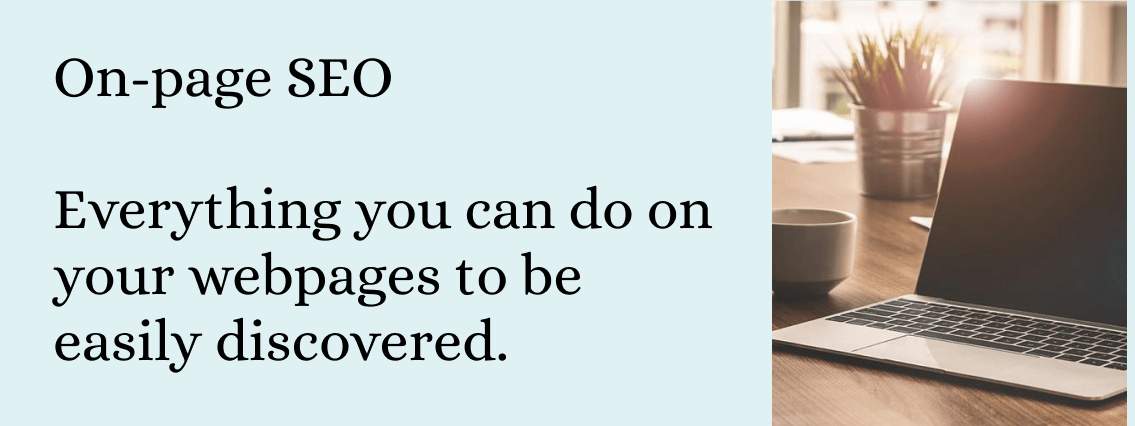

Technical SEO
This is outside my field of expertise, but extremely important for both visitors and search engines. Technical SEO is the technical aspects of your website. You often call in a developer for this, or you mess around with it yourself.
This is about improving the speed and performance of your website, ensuring good security, using a responsive web design and optimizing your site structure and sitemap.
4 Tips for Technical SEO
1. Fast website
Website speed is an important aspect of technical SEO. It is important to ensure that your site loads quickly to improve user experience and reduce bounce rate. If visitors click away because of a slow website, that is not good for your ranking.
You can improve speed by optimizing images, using caching and compression tools, and reducing the number of HTTP requests. There are many plugins and tools that can compress images, so you can easily do it yourself. Leave the rest to an expert.
2. Secure website
Search engines prefer websites that are safe and have a secure connection. Make sure your site is secured with an SSL certificate and that your website is optimized for HTTPS connections.
3. Responsive webdesign
A responsive web design ensures that your website is easy to navigate on different devices. It is important to optimize the site for mobile devices as almost everyone uses their smartphones and tablets.
4. Structure and site map
A good site structure and sitemap help search engines better crawl and index the website. It’s important to make sure the structure is logical and organized and that you submit a sitemap to search engines to make content easier to find.
Technical SEO is now more important than ever to your visitors. So I’ll add it anyway, your visitors and potential customers drive organic traffic. So keep them in mind.
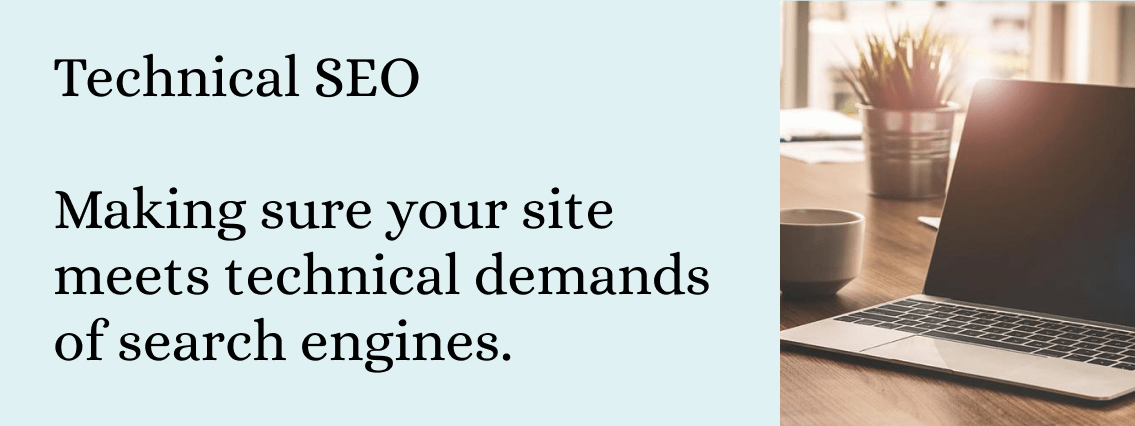

SEO Content
This is using relevant keywords in your content, creating interesting and engaging content, and sharing your content on social media and other online platforms. This way you make your content super attractive for your audience and search engines.
Content comes in all shapes and sizes. Think of blogs, social media, newsletters, white papers, e-books and more. But for now let’s stick to the content on your website and social media.
1. Content optimization
Meta/SEO-Title: Place your keywords in the first part of the title. Google places more value on the first few words.
URL: Keep URLs as short as possible and use the most important keywords to optimize the page for search results.
H1/2/3 day: H1 is your title, H2 is your main topics and H3 is sub-topics. Keep it simple.
Meta description: By placing the keyword in the first 100 words (or 10%) of your blog, you tell Google and visitors what the topic is about.
Image file names: For images, make sure the keyword is in the file name.
ALT tags: The ALT tag is displayed by text browsers instead of an image. Because the ALT tag is in the image code, search engines use it as a ranking factor. People with visual impairments can use Alt tags to know what your image is about.
Content length: Long articles usually score better. That’s because a longer blog post contains in-depth information. This keeps visitors on the page longer.
Multimedia: Media such as videos, infographics and audio are incredibly effective.
Links: Use internal and external links for a better structure and higher online authority.
2. Create valuable and personal content
Creating valuable and engaging content is important for search engines and visitors. Search engines prefer content that is relevant, while visitors want content that is valuable in their eyes. It is important to create content that is interesting, informative, relevant and easy to read.
Personalization is the most important of all. These days it’s all about personalized user experiences, personalized content and customization. Therefore, get to know your target group well. Learn what they do, how they are active online, where they get their information from and what types of content they use. Get under the skin of your ideal customer.
Take examples of your biggest competitors, and the first search results of your chosen keyword. You get a lot of inspiration from that and you immediately find out which position you need to take to overtake the competition.
3. Share content on social media and other platforms
Sharing your content on social media and other online platforms can help expand your reach and increase your website traffic. Sharing your content on social media allows you to reach your followers and fans and encourage them to share your content with their own networks. Sharing your content on other online platforms such as forums and blogs can also help expand your reach and increase your website traffic.
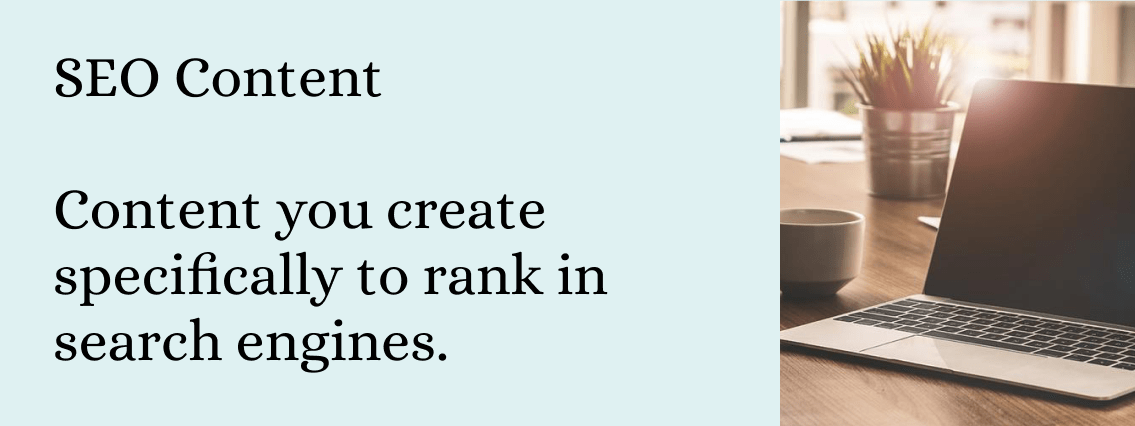

SEO Plugins en Tools
A very nice one. Plugins and Tools! Yes, as an entrepreneur you’re offered an awful lot of plug-ins, tools and other software. But that’s for a reason. They help you to work effectively and productively, simplify business processes and even solve business problems. It’s exactly the same for SEO.
5 SEO Plugins en Tools
1. Yoast SEO
Yoast SEO is a popular SEO plugin for WordPress that helps you optimize your content for search engines. With Yoast SEO you can analyze your content based on relevant keywords, meta descriptions, titles and much more.
2. Google Search Console
Google Search Console is a free tool from Google that helps you monitor and optimize your website for search engines. With Google Search Console, you can track your search traffic, index your website, submit your sitemap, and much more.
3. SEMrush
SEMrush is an all-in-one SEO tool that helps you improve your online presence. With SEMrush you can research your keywords, analyze your competitors, check your backlinks and much more.
4. Ubersuggest
A cheaper version of SEMrush, but definitely does the job. An all-in-one tool that I also use for keyword research, competitive analysis, and working on my own SEO strategy.
5. Rankmath
Also a WordPress plugin. I use this myself after having used it myself for a number of customers. And I am certainly satisfied. It ensures that I don’t forget a single point when it comes to SEO optimization.


Benefits
- SEO helps to increase the visibility of your brand and position the company as an authority within your industry.
- Companies that use an SEO strategy are more likely to attract and retain new customers than those that don’t.
- Content that is optimized for search engines and provides valuable information to potential customers can lead to a higher conversion rate and more leads.
- Sites that rank well in search results generally have more traffic and are more likely to generate leads than sites that don’t.
People like to buy from companies they know, relate to and trust, and SEO can help you achieve that. So if you want to grow your business and get ahead of your competitors, then SEO is definitely worth it.


Do you want online success?
Make sure you draw up a SEO strategy that helps you to place targeted content on your website. Tailor it to the needs of your target audience and stay consistent. The results will come naturally. Now SEO takes a lot of time, but I can help you with that.
I provide SEO Web texts that fit your company and target audience. I take over all time-consuming tasks, such as research, creating plans and writing and optimizing texts.
With the impact of SEO on the success of your business in mind, SEO is indispensable in your online marketing strategy.
I want online success

